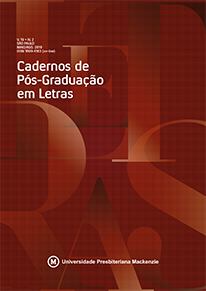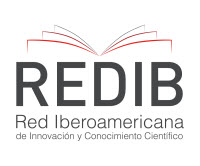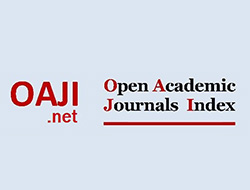Da guerra de Troia à Guerra do Paraguai
Reminiscências clássicas em Iaiá Garcia, de Machado de Assis
Keywords:
Classical culture, Machado de Assis, Iaiá GarciaAbstract
In his vast fictional production, Machado de Assis frequently turns to the Greek and Roman Ancient cultures to set up dialogues (BAKHTIN, 2002), as the contemporaneous criticism has appointed (REGO, 1989; BRANDÃO, 2001; MARTINS, 2015, 2016, 2018; TEIXEIRA; MARTINS, 2017). Starting with the idea that Greek and Roman myths constitute a significant shared repertoire of narratives to the construction of symbolic and material values in the Western world, in this paper we intend to demonstrate how the classical themes are quoted and reconfigured through Machado’s work in his novel Iaiá Garcia. For such matter, we apply the concept of classic as a point of reference for the crossing of new writings (BARBOSA; BRANDÃO; TREVIZAM, 2009), as well the definition of myth as traditional narrative (BURKERT, 1991). We have found mithemes that refer of poets (Homer, Virgil), tragedy (Prometheus), history (Lucullus), philosophy (Diogenes), besides elements of the Greek and Roman mythology (Venus and the Naiads). In the analysis, we advocate that Machado select precisely these quotations because he sought to review the social relationship of his time considering the breakdown of the Romantic formulas, emphasizing the determination and the dynamics of the female characters in contraposition to the stereotype of a fragile and subordinate female figure in the nineteenth century in Brazil.Downloads
Download data is not yet available.
Downloads
Published
2019-08-26
How to Cite
Martins, E., & Tavares, F. (2019). Da guerra de Troia à Guerra do Paraguai: Reminiscências clássicas em Iaiá Garcia, de Machado de Assis. Cadernos De Pós-Graduação Em Letras, 19(2). Retrieved from http://editorarevistas.mackenzie.br/index.php/cpgl/article/view/12252
Issue
Section
Dossier
License
The copyright of the articles published in Cadernos de Pós-Graduação em Letras belongs to the authors, who grant the Mackenzie Presbyterian University the exclusive rights to publish the content. Total or partial reproduction is prohibited without due authorization from the Editorial Committee, except for study and research.











